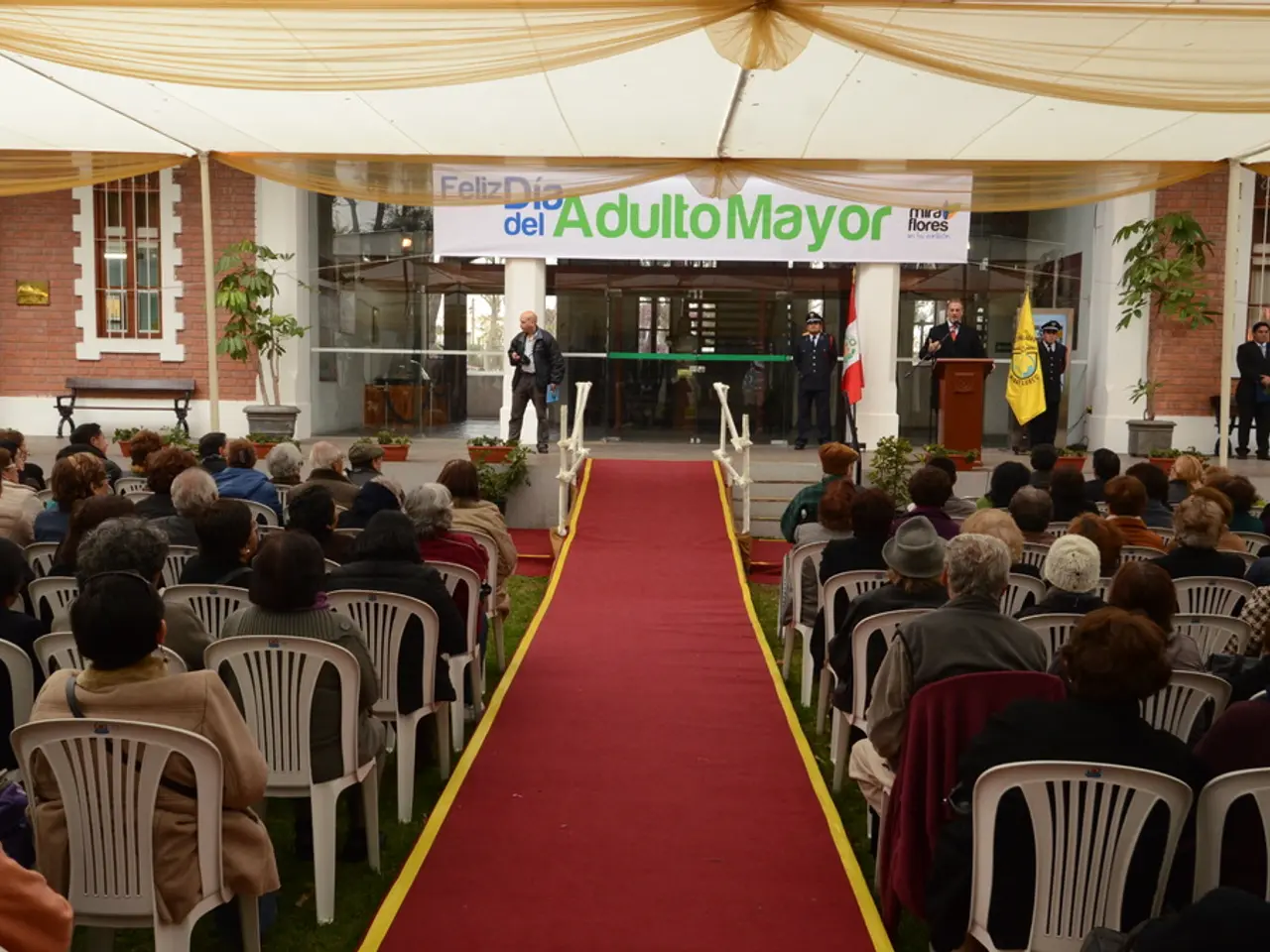Malaysia's minister Johari Abdul Ghani to assume responsibility for the environment portfolio
Malaysia is making significant strides in its efforts to combat climate change, with the Natural Resources and Environmental Sustainability Ministry (NRES) currently preparing the country's National Climate Change Bill and National Adaptation Plan. These initiatives, which are part of the 13th Malaysia Plan (13MP), are designed to regulate Malaysia’s climate response and strengthen national preparedness against climate impacts.
The National Climate Change Bill, once passed into law, aims to establish a legal framework for emission reductions, enable carbon credit mechanisms, and incentivize industries to reduce greenhouse gas emissions. This bill could play a crucial role in supporting Malaysia’s net-zero by 2050 goals.
Following the resignation of Nik Nazmi Nik Ahmad as NRES minister, the responsibility for preparing and advancing these climate initiatives now falls under the acting minister, Datuk Seri Johari Abdul Ghani. Johari has publicly stated that the National Climate Change Bill will include incentives for industries to reduce greenhouse gas emissions and may incorporate carbon credits to support Malaysia’s net-zero goals.
In a separate development, Sabah has independently passed its own Climate Change and Carbon Governance Enactment 2025. This state-level legislation establishes a legal framework and institutions such as the Sabah Climate Action Council to regulate carbon-related activities and build climate resilience. This strong political will at the state level reflects a distinct approach from the national bill and plan.
Meanwhile, Johari Abdul Ghani, the current Plantations and Commodities Minister, has suggested that Malaysia could use palm oil waste as a renewable energy source to replace coal. As the government aims to phase out coal from the country’s energy system by 2044, this could be a promising step towards a more sustainable energy future.
In addition to these initiatives, the finance ministry, led by Anwar, is responsible for overseeing efforts to implement a carbon tax in 2026 for Malaysia’s hard-to-abate industries, including energy, steel, and cement. The NRES is also drafting a carbon market policy, which could include plans to establish a domestic emissions trading scheme.
The reallocation of duties from the NRES to Johari Abdul Ghani was announced today, with Johari having held the post of Plantations and Commodities Minister since late 2023. Prior to this, Johari served as Deputy Finance Minister under former Prime Minister and Finance Minister Najib Razak.
The ministry is also preparing the country’s first National Adaptation Plan, targeted for completion next year. This plan will integrate disaster risk management and spatial planning to further bolster Malaysia’s climate resilience.
As Malaysia moves forward with its climate initiatives, it is clear that the country is committed to addressing the challenges posed by climate change and building a more sustainable future for its citizens.
- The National Climate Change Bill, once passed into law, will establish a legal framework for emission reductions, enable carbon credit mechanisms, and incentivize industries to reduce greenhouse gas emissions, playing a crucial role in supporting Malaysia’s net-zero by 2050 goals.
- Sabah has independently passed its own Climate Change and Carbon Governance Enactment 2025, establishing a legal framework and institutions to regulate carbon-related activities and build climate resilience, reflecting a distinct approach from the national bill and plan.
- Johari Abdul Ghani, the current Plantations and Commodities Minister, has suggested that Malaysia could use palm oil waste as a renewable energy source to replace coal, potentially a promising step towards a more sustainable energy future.
- The finance ministry, led by Anwar, is responsible for overseeing efforts to implement a carbon tax in 2026 for Malaysia’s hard-to-abate industries, including energy, steel, and cement, as part of the strategy to address climate change and pursue sustainability.
- The Natural Resources and Environmental Sustainability Ministry (NRES) is preparing the country’s National Adaptation Plan, which integrates disaster risk management and spatial planning to further bolster Malaysia’s climate resilience.
- Amidst these initiatives, Malaysia is moving forward with its commitment to address the challenges posed by climate change and build a more sustainable future for its citizens, with policy and legislative efforts in renewable energy, carbon management, and environmental sustainability playing key roles in this transition.







